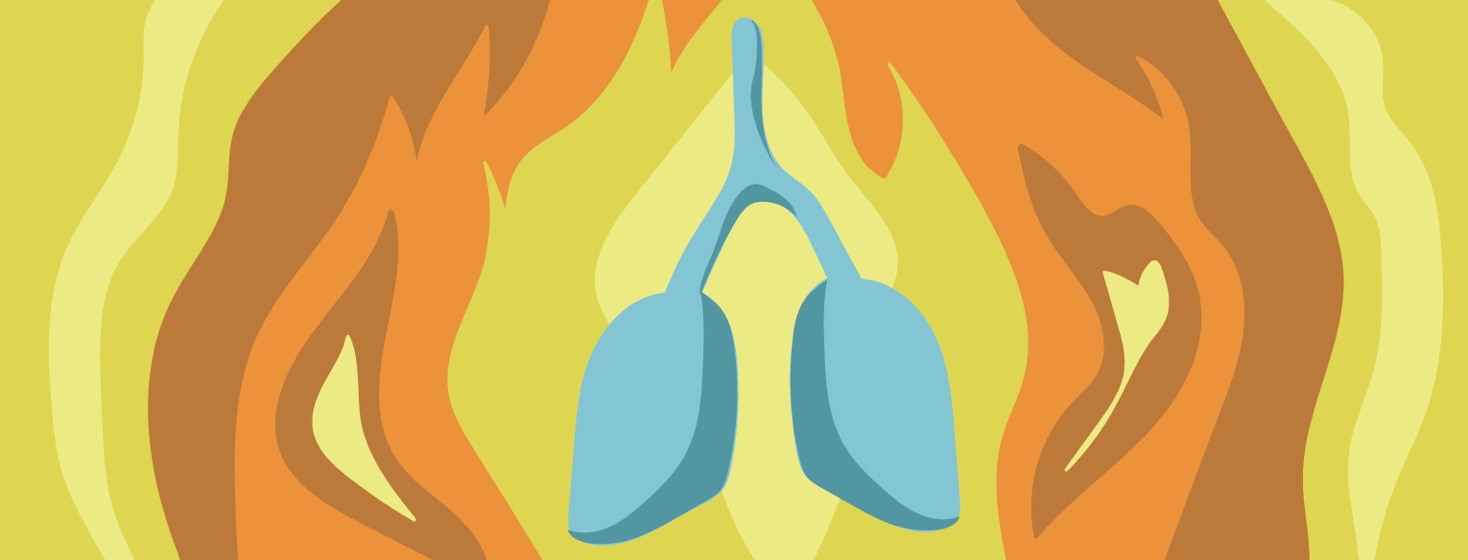Tips for Preventing COPD Flare-Ups
When you have COPD, flare-ups (also known as exacerbations) are part of your life. They may not happen every day. But chances are you will experience a flare-up of some kind at least every few weeks. The good news is there are actions you can take that can reduce the frequency and intensity of these flare-ups. These actions may even completely prevent COPD flare-ups from occurring at all.
What is a COPD flare-up?
A flare-up is when your COPD symptoms worsen or become more constant. You may also notice new symptoms you haven't had before. Flare-ups can greatly interfere with your quality of life. They may also lead to emergency care or hospitalization. Untreated flare-ups can even result in death.
So, obviously, you need to know how to recognize the signs of a flare-up and what to do right away.
The signs of a COPD exacerbation include:
- An increase in shortness of breath, wheezing, and chest tightness that differs from your everyday level
- Coughing more than usual
- Changes in the color and amount of mucus you cough up -- yellow, green, brown or blood-tinged
- Mucus that is thicker or stickier than usual
- Feeling like you have a cold or sore throat or developing a respiratory infection
- Fever
- Swelling in your ankles and feet
- A general feeling of fatigue and malaise that is worse than usual for you
- Mental confusion
What to do if you're having a flare-up
Hopefully, you have a written COPD action plan that will guide you as to what to do when you start to notice signs of a COPD flare-up. Typically, these actions can include:
- Using your rescue inhaler, if you have one
- Adding supplemental oxygen therapy (or increasing the flow rate)
- Using an inhaled steroid via an inhaler or nebulizer
However, you should never initiate those types of treatments without specific advice from your doctor. If you don't have a written action plan, then be sure to call your doctor right away when you start to experience symptoms. If you can't reach your doctor, then don't hesitate to visit your local emergency room. Quick action is essential to preserving your health.
Preventing COPD flare-ups
They say, "Prevention is the best medicine." This is certainly true of COPD exacerbations. Why wait till they happen and then initiate treatment, if you could instead prevent them from happening at all?
Prevention is possible in many cases. Here are some tips that can help you stay healthy for as long as possible.
1. Ask your doctor for a written COPD action plan if you don't have one
This written plan will tell you what medications to take and when. It will also guide you on adding medication or increasing doses in the face of certain symptoms. Plus, it can help you know when to call the doctor or go to the hospital. Here is an example.
2. Practice a healthy lifestyle
Make healthy food choices. Drink plenty of water. Stay active and get plenty of sleep. All these things will help keep your body and your immune system strong. And that will help you avoid catching infections or with fighting them.
3. Stop smoking, if you still smoke
Quitting the smoking habit is the best way to improve the health of your lungs and prevent further damage. If you need help, there are many options you can discuss with your healthcare team.
4. Follow your medication regime
Medications can reduce the inflammation in your airways and keep them relaxed and open. If you're not having the positive effects you expect from your medicines, or if you notice any unpleasant side effects, talk with your doctor. Don't just stop taking the medication. There are many treatment choices that can help with COPD. Working with your doctor, you can find the right combination for you.
5. Protect yourself from infection
Wash your hands frequently, especially when out in public. Avoid touching your face, as there may be germs on your hands. Stay away from sick people if you can, by avoiding crowds or asking sick caregivers to limit their time with you. And get your flu shot every single year!
6. Do your best to avoid triggers that worsen your COPD symptoms
Of course, first you have to figure out what those triggers are, but typically they can include: air pollution, tobacco smoke and breathing either very cold or very humid air. If you have nasal allergies, they might also include things like dust, pollen, animals and mold.
7. Keep in contact with your healthcare team
Be sure to keep your regularly scheduled office visit appointments. Call with questions when you have them. Report major changes in your health or symptoms. Be open about how you are feeling. Act as though you are an integral member of that healthcare team -- because you are!
Follow these tips for a healthier you!

Join the conversation